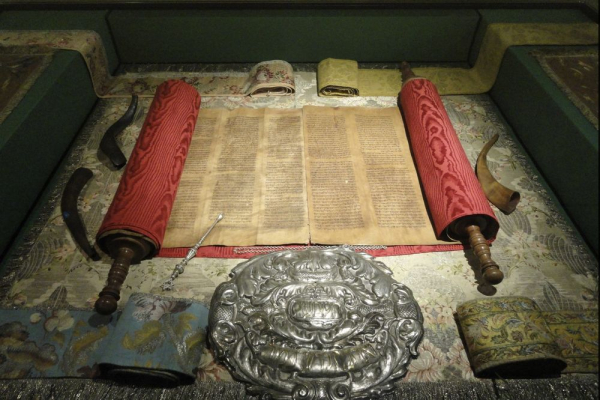1Th 5:16-24
1Thessalonians 5:16 Be joyful always,
1Thessalonians 5:17 pray unceasingly,
1Tessalonians 5:18 in all things give thanks; for this is the will of God in Christ Jesus toward you.
1Thessalonians 5:19 quench not the Spirit,
"Be joyful always". The theme of joy is the spiritual climate of the Christian community. Christianity is joy, spiritual gladness, joy of the heart, serenity of the mind. 'Always' means in all circumstances. From an outward point of view, there was little for which believers in those days could rejoice. But joy is a fruit of the Spirit, not something the Christian can procure from his own resources.
The Christian is called to always be joyful. This quality of his new being is only possible on one condition: that there is such a strong faith in his heart that he thinks at all times that everything that happens, happens for a greater good for us. Whoever does not possess this faith is lost, because tribulation, without faith, does not generate hope, but disappointment, sadness, tears and every other kind of bitterness.
Gladness ripens only on the tree of faith, and he who falls from faith also falls from gladness and falls into sadness. Knowing that physical or moral evil permitted by God must generate sanctification in us, the Christian accepts it in faith and lives it in prayer.
In fact, the apostle adds: 'pray unceasingly'. In this very brief exhortation is hidden the secret of the Christian's life. Prayer must punctuate the life of the community and of individuals; a continuous attitude. It is not the little prayer done every now and then, but a regular prayer, done according to a constant rhythm. If we do this we can go even further, and that is to live in a spirit of prayer, aware of God's presence with us wherever we are.
The moment is lost that is without prayer. It is a moment entrusted only to our will, rationality, it is a moment lost because it is not done according to God's will but according to our own. Lost is that moment lived but not entrusted to God in prayer. Lost is that moment made by ourselves, but not made as a gift of God for us and for others. This is the truth of our life.
Because today we no longer pray, or we only pray for some personal interest, so much of our life is wasted, it is lost, it is not lived either for our own good or for the good of our brothers. Learning to pray is the most necessary thing for a man. Teaching how to do so is the primary work of the priest, or of those who lead the community.
"In everything give thanks" is the way to live in a joyful and prayerful atmosphere. We have the verb eucharistein ('to give thanks'). In every situation give thanks, because even in our difficulties and trials God teaches us valuable lessons. It is not easy to see the positive side of a trial, but if God is above all things, then He is sovereign even in the trial.
For thanksgiving to be made of everything, the heart must be clothed in humility. It is proper to humility to recognise what the Lord has done and is doing for us. But it is proper to prayer to raise to the Lord the hymn of thanksgiving, of blessing, of glorifying his name that is mighty on earth and in heaven.
He who does not give thanks is an idolater. He thinks that everything is from him, from his abilities, and therefore he attributes to himself what is simply and purely a gift from the Lord. An example of how one thanks the Lord, blesses Him, exalts and magnifies Him is the Virgin Mary. Her Magnificat is recited daily by the Church. It must not only be recited, but also imitated, prayed, made one's own life.
At the end of this triad of imperatives on the spiritual life, a motivation is given that encompasses all three exhortations: 'for this is the will of God in Christ Jesus towards you'. In this context, the expression 'will of God' implies a way of life that corresponds to the plan of salvation revealed in Jesus Christ. God's will is made known in Christ, and in Christ we are given the motivation and strength to do that will.
Argentino Quintavalle, author of the books
- Revelation - exegetical commentary
- The Apostle Paul and the Judaizers - Law or Gospel?
Jesus Christ true God and true Man in the Trinitarian mystery
The prophetic discourse of Jesus (Matthew 24-25)
All generations will call me blessed
(Buyable on Amazon)




